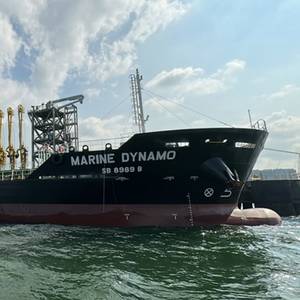
Singapore-registered tanker Marine Dynamo and a Malta-registered bulk carrier Flag Gangos have collided south of Tanah Merah in Malaysia.Both vessels are stable, following the incident that occurred in the early hours of September 1, the Maritime and Port Authority of Singapore (MPA) informed.Light oil sheens have been sighted in the vicinity of Marine Dynamo.
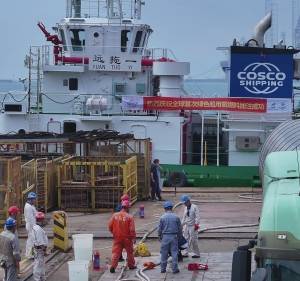
Sinobunker, one of COSCO Shipping’s subsidiaries, has completed the world’s first green ammonia bunkering operation at COSCO Shipping Heavy Industry’s Dalian terminal.The ammonia was sourced from the world’s largest green hydrogen and ammonia plant established by Envision in Chifeng and powered entirely by the world’s largest independent renewable energy system.

Ordering of alternative-fueled vessels is continuing to grow in 2025, despite a slowdown in the overall newbuild market. According to data from DNV’s Alternative Fuels Insight (AFI) platform, new orders for alternative-fueled vessels reached 19.8 million gross tonnes (GT) in the first six months of 2025, exceeding the 2024 figure by 78%.
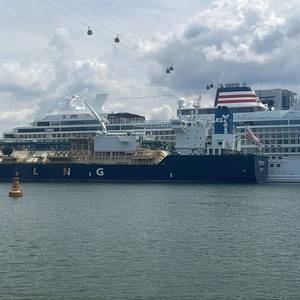
ASUKA III, said to be the largest Japanese-flagged cruise ship, has completed its first marine LNG bunkering by FueLNG Private at Singapore Cruise Centre.The bunkering milestone also marks Shell LNG's first supply to an LNG-powered cruise ship in the region, according to Singapore Cruise Centre.Asuka III is owned by NYK Cruises, a company of the Japanese shipping group NYK.
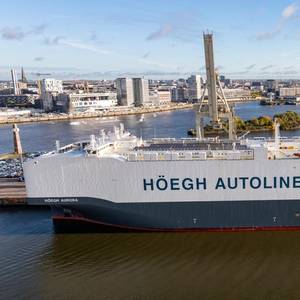
Confusion over new fuels will not be helped by the fact that each one has a good and bad version. The science on grey ammonia, grey methanol, and palm oil biofuel show that these are probably worse for the planet, if adopted, than unfettered continuation of fossil fuel consumption.
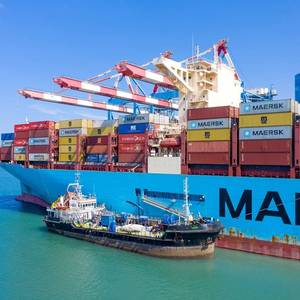
The maritime industry has worked with a single fuel source for over a century and with the rush to meet emission standards in both domestic and foreign markets, adapting to the current list of alternative fuels is going to present significant problems. Each market has its issues whether bluewater, brownwater, coastal, foreign or domestic.
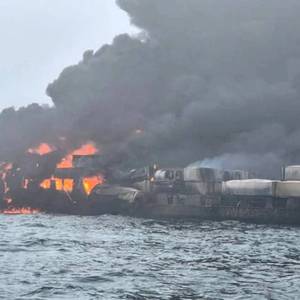
The UK Marine Accident Investigation Branch (MAIB) has published a time line of the collision between the Portugal registered container ship Solong and the US registered oil/chemical tanker Stena Immaculate.The collision resulted in one fatality, 14 nautical miles north-east of Spurn Head at the entrance to the Humber Estuary, England, on March 10, 2025.
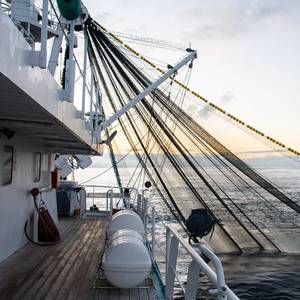
U.S. President Donald Trump’s regulatory freeze has injected chaos and uncertainty into a number of lucrative American fisheries, raising the risk of a delayed start to the fishing season for some East Coast cod and haddock fleets and leading to overfishing of Atlantic bluefin tuna, according to Reuters interviews with industry groups and federal government employees.
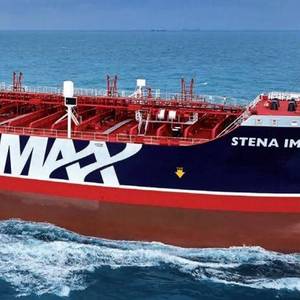
A tanker carrying jet fuel for the U.S. military was hit by a container ship off northeast England on Monday, with the collision igniting a blaze on both vessels, causing multiple explosions and forcing both crews to abandon ship.The tanker, which can carry tens of thousands of tons of jet fuel, was at anchor when the smaller container ship struck it
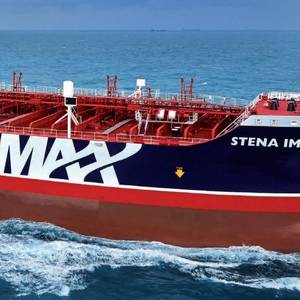
Stena Immaculate and the Portuguese-flagged container ship Solong Tanker, cargo ship collide off UK coast causing blaze and casualties.A chemical tanker and container ship collided off the northeastern coast of England on Monday causing a huge fire on at least one of the vessels and leading to numerous casualties.
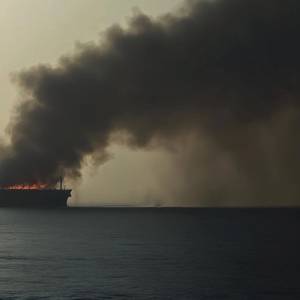
An oil tanker and a cargo ship a collided off the northeastern coast of England on Monday causing a huge fire, with authorities mounting an emergency response involving aircraft and lifeboats.Shipping industry sources told Reuters the two vessels involved were the chemical tanker Stena Immaculate and container ship Solong.
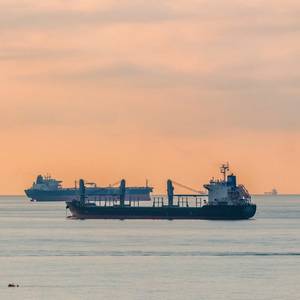
The 2024 represented an unprecedented year for maritime industry when it comes to orders for alternative-fueled vessels, driven mainly by liquefied natural gas (LNG), according to the latest data from DNV’s Alternative Fuels Insights (AFI) platform.A total of 515 alternative-fueled such ships were ordered, excluding LNG carriers, representing a 38% year-on-year increase compared to 2023